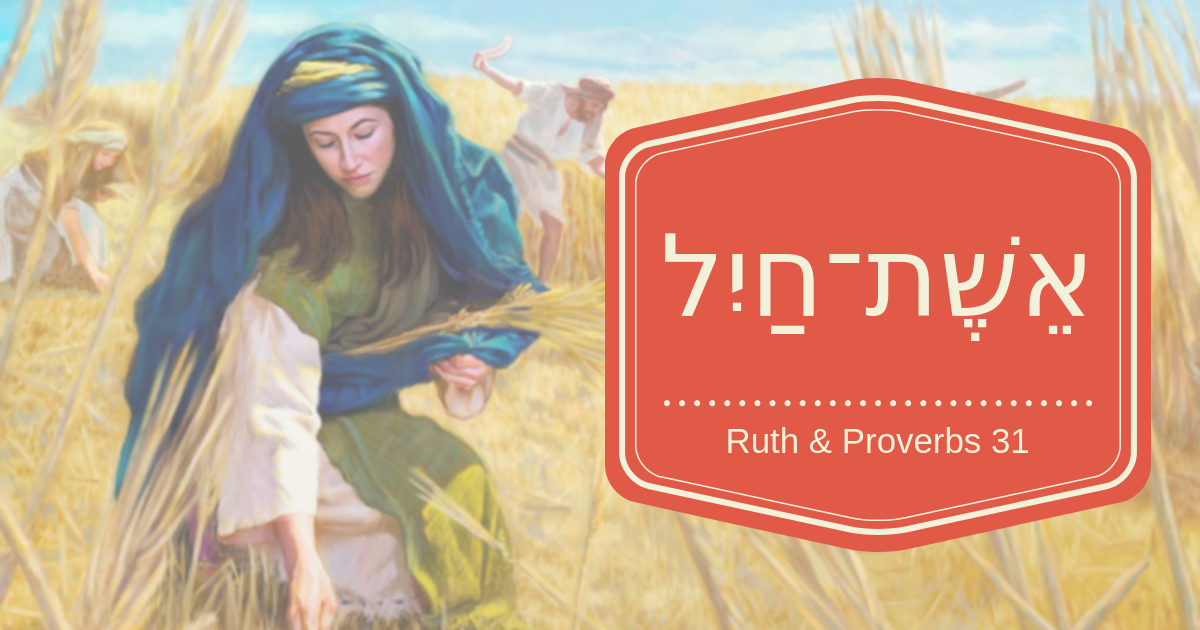
The eshet hayil in Prov 31:10 has led translators in many directions, from the “virtuous woman” (KJV) to the “excellent wife (NASB) to the “wife of noble character” (NIV). And occasionally you will even read about a “woman of valor.” Why the diversity?
The LXX in 31:10 has γυναῖκα ἀνδρείαν, “brave woman” (literally “manly” but we won’t go there). The only other appearance of the expression in the Hebrew Bible is in Ruth 3:11 where Boaz describes Ruth with this same expression. There the LXX has γυνὴ δυνάμεως, “woman of power.” Hebrew Bible readers will remember that Ruth follows Proverbs 31 in the Ketuvim (“Writings”). It appears that the rabbis did this placement intentionally because of this common expression.
The Vulgate has mulierem fortem (“brave woman”) in Ruth and mulierem virtutis (“woman of virtue”) in Proverbs 31. No doubt this last translation in the Vulgate influenced the KJV translation of “virtuous woman.” But the Latin word virtus, which the KJV translates as “virtue,” actually means “strength” or “power” – not necessarily the moral attributes associated with the English word “virtue.”
We should not be surprised at these Greek and Latin translations because the Hebrew word hayil also means “courage” and describes men that way elsewhere in Judges (e.g., Moabite warriors, 3:29; Gideon, 6:12; Jephthah, 11:1). It is important to remember that the period of the “Judges” was contemporary with the book of Ruth (1:1), which actually serves as a more positive appendix to Judges 17-21. Is there an intended comparison of Ruth with the courageous males during that time? Furthermore, Boaz was described with the same expression (2:1). Were Boaz and Ruth, therefore, a perfect match?
While it may alter some of our sermons on the “virtuous woman,” it looks like the Hebrew, Greek, and Latin words describe the woman in Proverbs 31:10ff more as a “strong” or “courageous woman.” Upon further reflection, it must have taken some real courage for this young woman to leave her own country and return to a strange land with Naomi. That moral courage influenced her to take shelter under the wings of Yahweh (Ruth 2:12).
My thanks to the members of my Facebook forum, Nerdy Language Majors, for their stimulating comments about a preliminary version of this article.

